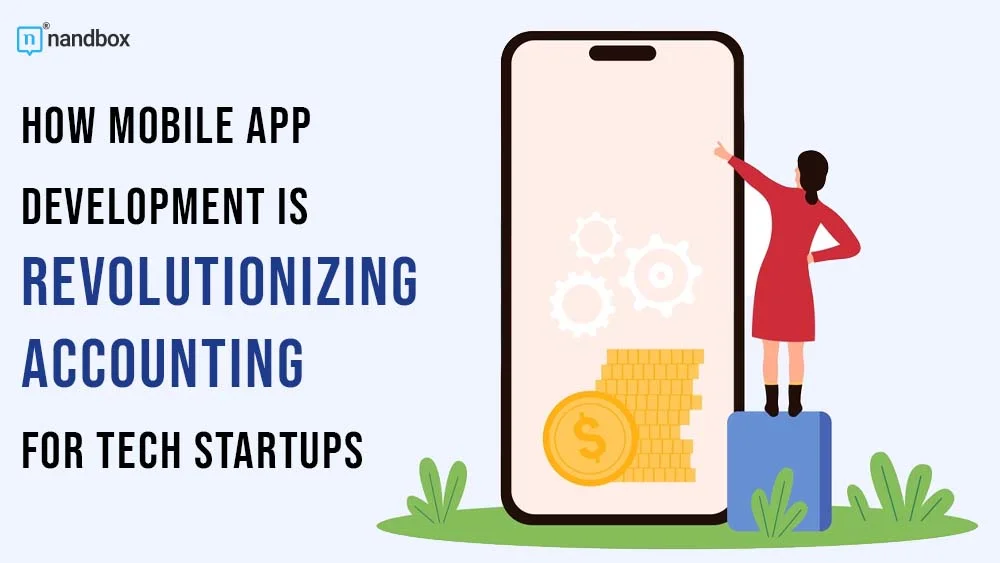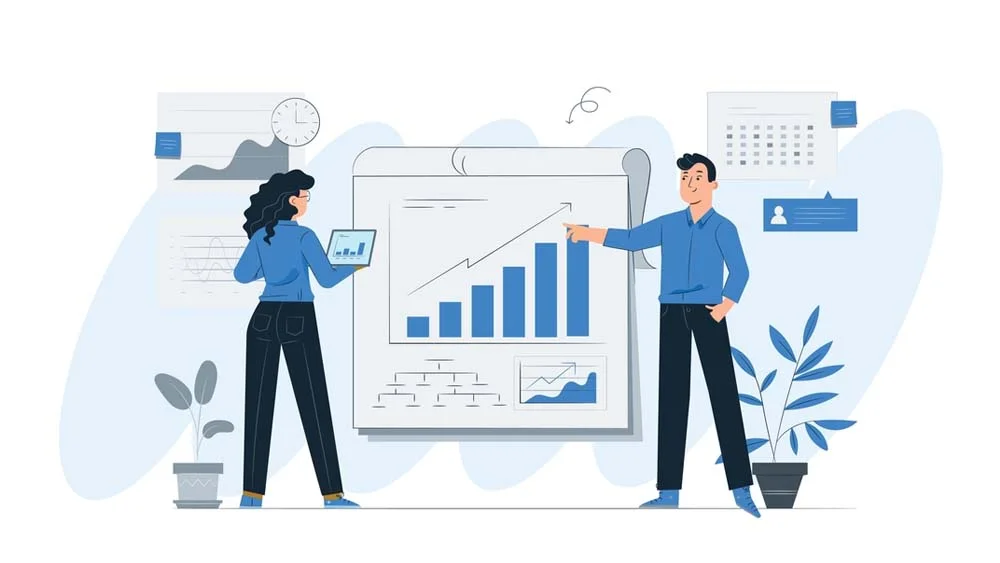Technology start-ups have taken the lead in innovation within the fast-changing digital environment, where they constantly seek new methods of improving operations and getting a competitive advantage over their rivals. When considering the various aspects of business changing due to technology, accounting is one field that has experienced a radical transformation, especially in mobile app development. An accounting mobile application is redefining how start-ups handle their finances by providing unmatched accessibility features, real-time updates, and collaboration efficiency levels. This article delves into how mobile app development is revolutionizing an accounting mobile application for tech startups, highlighting the numerous benefits these innovative solutions bring.
Increased Accessibility
Increased accessibility constitutes one of the most outstanding benefits of an accounting mobile application. Typically, traditional accounting methods require physical presence or use of desktop software, which is not suited to the dynamic nature of technology startups.
In contrast, mobile apps help entrepreneurs and their teams capture financial data wherever they are. Particularly for start-ups where founders often double up as employees, this flexibility is very rewarding.
On-the-Go Financial Management
Mobile accounting apps allow startup owners and finance managers to keep track of their finances and generate sales reports while on the move. Be it attending conferences, meeting with investors, or working from a remote area, having access to financial information through a smartphone or tablet helps take immediate action on significant financial matters. Given their accessibility, such systems can prevent delays in reporting finances and making important decisions for start-up growth and survival.
User-Friendly Interfaces
For a modern accounting mobile application, user experience is considered in how they are built by having interfaces that are simple enough to follow when interacting with your finances online. Often, these kinds of apps come with dashboards that give an overview of a company’s financial state, thus enabling users to easily comprehend cash flow statements, expenditure reports, and sales figures. Non-financial professionals in startups will develop skills in approaching accounts as opposed to using complicated software developed for accountants only by ensuring that the application is friendly to its users
Real-Time Financial Insights
Another change brought about by accounting mobile application in the financial transformation process is the ability to obtain real-time financial insights. In a rapidly growing tech world, having current financial information is paramount for effective decision-making and staying ahead of the competition. Let’s have a look at this in detail below:
Live Data Synchronization
An accounting mobile application has embraced cloud technology so that they can sync finance data in real time. This means that any transaction, expense, or other financial entry made on one device becomes instantly updated across all connected devices. For a start-up business, this feature ensures that all team members have access to recent updates of financial data, thereby avoiding discrepancies and bringing everybody on board on matters related to finance.
Start-ups with live data synchronization can achieve accuracy and consistency in their books of accounts, fostering smoother teamwork and better decisions throughout the company. Such visibility into financial flows helps increase transparency as well as accountability, promoting efficiency and productivity within a start-up environment.
Immediate Access to Financial Metrics
Real-time insights enable companies to monitor key financial metrics as they occur. Key metrics such as cash flow, profit margin, and expense ratio are important indicators of how healthy a start-up is financially.
These metrics are available at a single touch through mobile accounting apps, thus enabling leaders to quickly discern trends, identify problems early enough before they become too big, or take remedial measures if need be.
Enhanced Forecasting and Planning
Any startup’s success heavily relies on accurate forecasting and strategic planning skills. Mobile accounting applications offer great tools for historical analysis, budgeting, and forecasting capabilities. A more precise use of real-time data by start-ups will lead to accurate revenue projections and flexible budgets which can respond appropriately even when there are changing circumstances.
This improvement in forecasting helps start-ups to be proactive regarding their future financial requirements, proper resource allocation, and setting achievable growth objectives. By allowing businesses to make data-based judgments and confidence-based plans, startups can deal with uncertainties in the market structure, thereby positioning themselves for long-term success as well as sustainability.
Enhanced Collaboration
Collaboration serves as a foundation for the success of startups; moreover, mobile accounting apps make it easier to work with team members and financial advisors. Such tools break down silos in finance management systems by providing a central platform.
Seamless Team Collaboration
Financial data can be accessed and managed simultaneously by several users through cellular accounting applications. This feature is especially important for start-ups that have team members distributed across various locations or working from home. Without the need for face-to-face meetings or lengthy email exchanges, employees can cooperate on financial duties such as expense tracking, invoicing, and budgeting.
This collaboration without barriers ensures that all individuals are always on the same page, hence reducing any possibilities of miscommunication and errors. In other words, mobile accounting apps help start-ups simplify their financial operations and thus enable them to manage their finances more effectively, which leads to growth.
Integration with Financial Advisors
Most start-ups usually turn to external financial advisors or accountants who provide professional guidance and support. Real-time access to financial information is one way in which mobile accounting apps facilitate better collaboration between entrepreneurs and these experts. They can access financial reports, provide strategic advice, or solve problems immediately, such that there is no need for physically meeting each other or transferring data back and forth, thereby saving time spent on slow processes.
Such an integrated approach enables startups to get timely and relevant advice about finance, which is essential in making informed decisions.
The Importance of Accounting Software for Startups
In today’s fast-paced business environment, accounting software plays a crucial role in helping startups streamline their financial operations. By automating tasks such as invoicing, expense tracking, and financial reporting, accounting software allows startups to focus on growth and innovation rather than manual bookkeeping. It offers real-time insights into cash flow, helping business owners make informed decisions that can boost profitability and efficiency. For startups looking to scale quickly, the right accounting software is not just a tool but a strategic asset.
Secure Data Sharing
The security of these mobile accounting applications is at par with any other tool used for financial management. To ensure that confidential financial information remains secure, these applications are protected with the most advanced encryption and security protocols. To maintain the confidentiality and integrity of financial data, startups can grant access to only specific users or advisors.
This is how they improve collaboration while maintaining the privacy of financial information. For instance, by implementing several security measures such as advanced firewalls and complex passwords, mobile accounting apps assure start-ups’ management of their sensitive fiscal details against unauthorized use or invasion, thereby increasing internal confidence in their systems at all times.
The Future of Mobile Accounting Apps for Tech Startups
The accounting revolution has just begun through mobile app development, with more thrilling advances yet to come. In response to the continuing evolution of technology, even more sophisticated mobile accounting apps incorporating improved features and capabilities that further benefit tech startups will undoubtedly emerge.
Artificial Intelligence and Machine Learning
In the future, artificial intelligence (AI) and machine learning (ML) are expected to be at the forefront of mobile accounting apps. Such technologies can automate routine tasks like expense categorization, account reconciliation, or production of financial statements.
These AI/ML technologies can free up time for founders and finance managers by reducing manual work on such tasks as well as enabling the provision of predictive analytics that aid in the anticipation of financial trends so that proactive decisions can be made.
Advanced Analytics and Reporting
With each new generation of mobile accounting apps come greater analytical capacities and reporting features. Additionally, startups will soon obtain a finer level of subtlety concerning how this data appears, as their respective mobile accounting platforms will give them deeper insights into their financial performance.
Factually, based on specific needs, enterprises can tailor financial insights that provide a clearer view of a company’s financial health & performance through customizable dashboards and reports.
Integration with Other Business Tools
Additionally, these applications ought to integrate seamlessly with other business tools or platforms in the future; a project management software solution is one such example, among others. An integrated approach that combines project management systems with e-commerce platforms & CRM will result in an all-in-one overview regarding operations in startup ventures. This strategy hastens processes, which leads to the accuracy of information held before being output.
Enhanced Security Measures
As companies continue to use mobile accounting applications extensively, there is a need for robust security measures in place at all times because they may end up being a vulnerability point when not properly handled or when unauthorized persons get access to them. Such future upgrades may include higher encryption protocols, biometric authentication, and advanced threat detection systems. With these security features, startups can be sure that their sensitive financial data remains safe for the benefit of all stakeholders.
Conclusion
There is no doubt that mobile app development has revolutionized accounting for tech start-ups, making it more accessible, providing immediate financial information, and encouraging collaboration, among other things. Startups will be able to manage their finances better through these mobile accounting apps; therefore making informed decisions as well as creating an atmosphere of openness and partnership.
Nevertheless, the future of mobile accounting is even brighter than today, promising greater innovation and thus giving businesses the confidence to deal with complicated financial matters nimbly. For any tech startup wishing to stay ahead of its competitors, the adoption of mobile accounting solutions should not just be seen as an option but rather a must-do thing since they provide flexibility, real-time insights, and collaborative capacities, which could result in sustainable growth & long-term success in the present fiercely competitive market environment.
As we move forward, the synergy between mobile app development and accounting will continue to shape the future of financial management, driving innovation and efficiency across the startup ecosystem.






